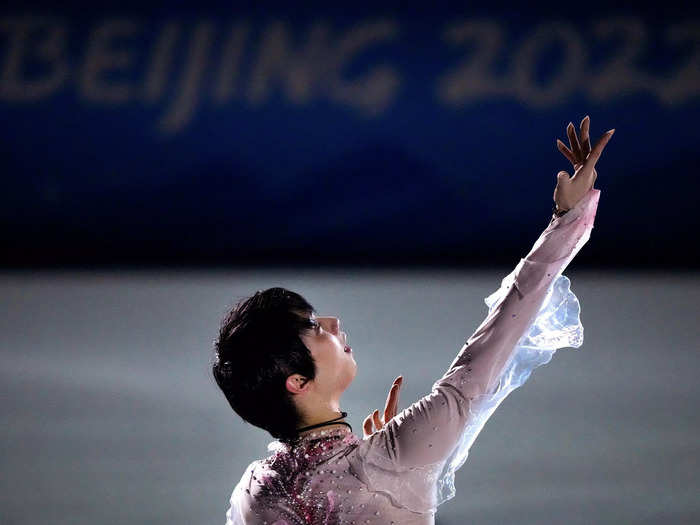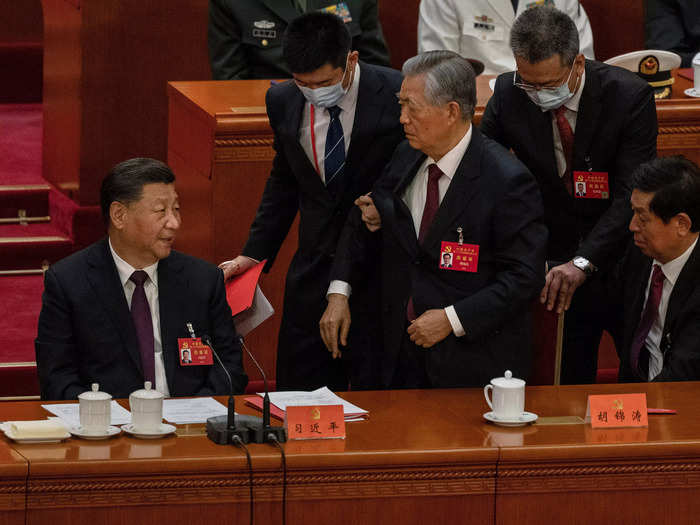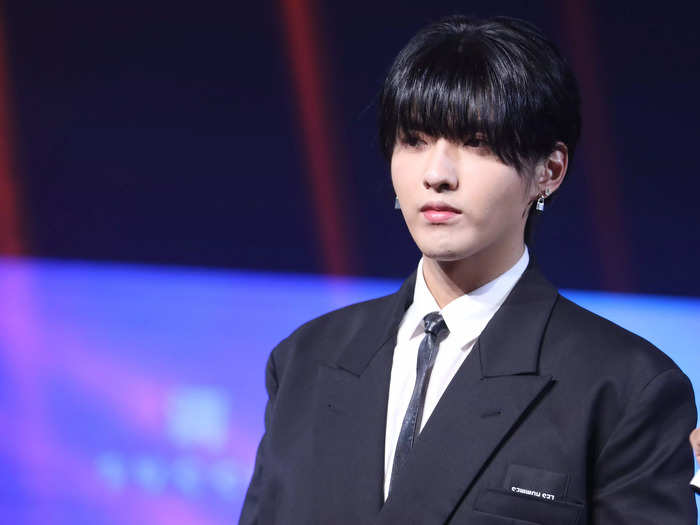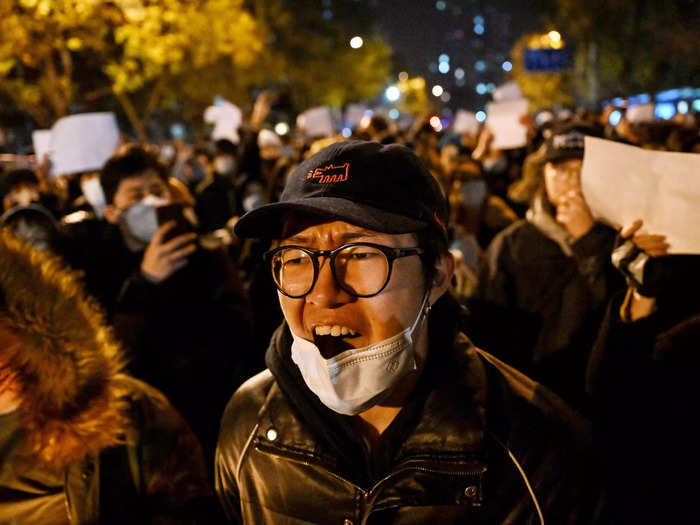- Home
- international
- news
- 7 viral moments that showed the world what was really happening behind China's Great Firewall of censorship in 2022
7 viral moments that showed the world what was really happening behind China's Great Firewall of censorship in 2022
Cheryl Teh

- China's social media platforms are known for quickly censoring posts.
- But some content does make it through China' Great Firewall of censorship.
In January, a viral video of a chained woman in a hut sparked national outrage.
In January, a vlogger shared a shocking video on Douyin, China's version of TikTok. The video, filmed in a village in Xuzhou, China's eastern Jiangsu province, showed a woman shivering and chained to the wall of a shack, with a lock bolted around her neck.
The video sparked national outrage. As usual, posts were quickly censored, but the ensuing social-media firestorm also prompted local authorities to investigate who the woman was and why she was being held under inhumane conditions.
Local officials said she was a woman called Yang, who was chained up because of her violent outbursts, reported the BBC.
However, that did not satisfy the Chinese public. Some people tried to find more information about her, wondering if she was a victim of human trafficking.
The "chained woman" later became a symbol of protest, with art of the woman going viral — then getting censored — on Chinese social media.
It's unclear what has since become of the woman. Chinese authorities, official media outlets, and academics suddenly stopped talking about the case in February, and social media accounts reporting on the woman were censored, the South China Morning Post reported.
During the Olympics in February, the Chinese internet found a new darling: Japanese figure skater Yuzuru Hanyu.

During the Beijing Games, one man managed to, for a moment, bridge the geopolitical divide between Japan and China.
Yuzuru Hanyu, the two-time Olympic figure-skating gold medalist, took to the ice in Beijing to much fanfare. Despite a major misstep in his short program and falling twice during his free skate, the Japanese athlete still managed to find his way into the Chinese internet's good books.
"Yuzuru Hanyu is a fairy. I guess I fell in love with the enemy's son," one person wrote on Weibo, referring to the strained relations between Japan and China.
Even Chinese state broadcaster CCTV echoed the online sentiment, with commentators saying of Hanyu: "His face is like jade, his body is like a pine tree. With astonishing skills, he is as graceful as a dragon."
During the Games, Hanyu was also a top trend on Weibo. Hashtags like "Why We Love Yuzuru Hanyu" went viral, as did the hashtag "#4A," referring to Hanyu's near-miss attempt at the elusive quadruple Axel jump.
At the end of the 2022 Beijing Games, Hanyu's name was still the No. 1 topic on Weibo's sports section.
Fed up with lockdowns, China's youth rallied around a censored hashtag, proclaiming they are the country's "last generation."

The beginnings of the hashtag stemmed from a now-censored viral video that first circulated in May.
In the clip, officers dressed in white hazmat suits can be seen standing outside a home in Shanghai and declaring that unless the resident moves to a quarantine center — despite testing negative for COVID-19 — he will be disciplined for refusing to abide by the city's COVID-19 restrictions.
After a threat from one officer that "three generations" of his family would be negatively impacted by his refusal, the man filming the video replies curtly: "Sorry, we are the last generation, thanks!"
In May, Insider's search of the term "last generation" on Weibo yielded a clean slate, indicating the platform had censored all posts related to the topic. However, Insider still managed to view individual posts that dodged the censors because they did not link directly to the censored hashtag.
Some posts appeared to critique the government's prolonged lockdown in Shanghai. Others used the hashtag to vent about the pressure people face to get married and reproduce in China.
"People wonder why this idea of the 'last generation' is something that people our age strongly respond to. Where I'm concerned, I admire that man's courage in voicing what we all feel. We face pressure to give birth. Women are continually harangued and abused. Even men don't want children," read a now-deleted Weibo post seen by Insider.
These posts reflected a brewing current of anger that was bubbling under the country's veneer of control — which would come to a boiling point at the end of 2022.
On October 13, a lone protestor hung two massive banners from a Beijing bridge to voice his opposition to Xi Jinping and the Chinese Communist Party. It was a searing image and a portent of unrest to come.
It was a stunning sight: tires burning and smoke rising from Beijing's Sitong bridge, a crossing in the capital's Haidian District. Clearly visible to all the passers-by were two massive banners hung by a lone protester.
They read: "We don't want nucleic acid testing, we want food to eat. We don't want lockdowns, we want freedom. We don't want lies, we want dignity. We don't want Cultural Revolution, we want reform."
And last of all, in direct opposition to Chinese leader Xi Jinping: "We don't want dictatorial leaders, we want elections. We don't want to be slaves, we want to be citizens."
The protester, Peng Lifa, was quickly arrested by the police. The timing of Peng's protests was obvious: he staged it on October 13. This was three days before the 20th National Congress of the Chinese Communist Party, where Xi consolidated his power and reshuffled the Politburo standing committee.
But as The New York Times reported in December, Peng became known later in the year as "the man who lit the spark in the darkness." He was also dubbed "Bridge Man," The Times reported. This is a reference to the "Tank Man," a lone protester who was photographed standing in front of tanks during Beijing's crackdown on the 1989 Tiananmen Square protests.
It's unclear where Peng is today. But the message written on his banners has not disappeared — instead, it became a rallying cry in the protests that rocked Beijing in November.
During the Chinese Communist Party's conference on October 22, an awkward moment between Xi and his predecessor, former Chinese President Hu Jintao, made its rounds online.

During the closing ceremony of China's 20th Party Congress, an aide approached Hu. He appeared to resist being removed from his seat but was ultimately escorted out of the hall by two aides.
It was a rare, un-choreographed moment of potential tension in the highest echelons of Chinese politics, and it instantly went viral online.
The event was widely censored on Baidu, China's version of Google.
In an op-ed published on October 22, Stephen McDonell, BBC's China correspondent, wrote that it was a moment in which the world could see "China's power politics on full display, with a leader representing a former time being symbolically removed."
As for the Communist Party's official explanation, Chinese state media Xinhua News tweeted on October 22 that Hu was "not feeling well" and had been accompanied "to a room next to the meeting venue for a rest."
On November 25, Chinese pop prince Kris Wu was given a 13-year prison sentence for rape. The decision was widely seen as new wind in the sails of the country's "Me Too" movement after years of censorship.

While Harvey Weinstein was being tried for rape in Los Angeles, China was having a "Me Too" moment of its own.
On November 25, a Beijing court sentenced Wu to 13 years in prison. The Chaoyang District People's Court in Beijing said in a statement that Wu was convicted of forcibly having sex with three women at his home in 2020.
The sentence came more than a year after Wu was arrested in July 2021 on suspicion of rape.
While it's too early to say if Wu's conviction marks a sea change in how sexual assault is handled in China, his case has marked a turning point in China's censorship machine.
In 2018, just three years before Wu's arrest, Chinese censors were trying to shut down feminists' posts on Weibo. Women found a way to evade censorship by communicating via emoji, using the emojis for "rice" and "bunny" — pronounced "mi" and "tu" respectively — to circulate posts about the #MeToo movement.
But after his conviction, the platform let social media users rejoice under the viral hashtag "Wu Yifan Sentenced to 13 Years in Prison." Some Weibo users even posted documentary videos from inside Chinese prisons, speculating if Wu would be subject to such living conditions.
November also saw perhaps the most important moment on Chinese social media and Chinese streets alike. Anger over COVID lockdowns finally boiled over, and people took to the streets in defiance against the Communist Party.

Not even the all-powerful censors on Chinese social media could contain the raft of protests that started in November.
In every major Chinese city, youths took to the streets with blank pieces of A4 paper in their hands as a symbol of defiance against the country's government. Cities like Shanghai and Beijing saw rallies of a scale not seen since the Tiananmen Square protests in 1989.
"The white paper represents everything we want to say but cannot say," a 26-year-old man named Johnny told Reuters during the Liangma River protests in Beijing on November 27.
One large protest in Beijing happened near the city's Liangma River on November 27. During that rally, protestors chanted the very slogans "Bridge Man" had spelled out in October.
While it was a rare moment of mass dissent in China, the anger expressed by protesters has now faded into a background hum on social media.
In December, China lifted many of the zero-COVID policies that people were protesting against and rolled back restrictions, including the need to quarantine at a facility. Now, the country faces a new challenge after years of lockdowns: a resurgence in COVID-19 infections, and what could possibly be one million deaths in 2023.
Popular Right Now
Popular Keywords
Advertisement